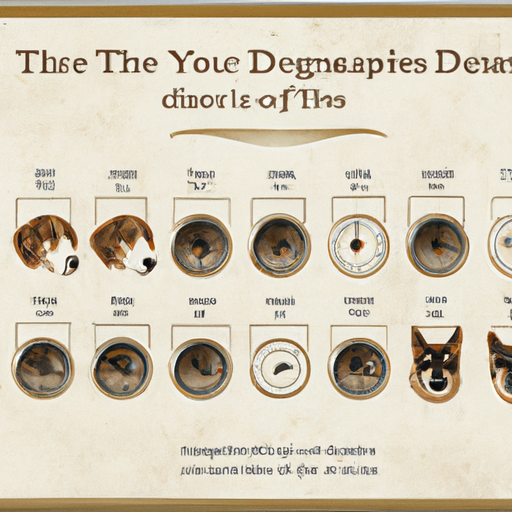Introduction
You’ve found a loyal companion in your dog, haven’t you? Their boundless energy, wagging tails, and loving eyes have become the highlight of your days. As a caregiver, there’s nothing you wouldn’t do for your four-legged friend. But there’s a question that often lingers in the back of your mind – just how long can you expect your furry friend to be with you?
Factors Influencing a Dog’s Lifespan
Just like humans, a dog’s lifespan can be influenced by various factors. Some of these include:
- Breed: Smaller breeds tend to live longer than larger ones.
- Nutrition: A balanced diet can contribute to a longer, healthier life.
- Exercise: Regular physical activity helps maintain a healthy weight and good overall health, potentially extending your dog’s life.
- Regular Vet Check-ups: Early detection and treatment of health issues can significantly improve your dog’s lifespan.
These factors are not set in stone, but they can give you a broad understanding of what can influence your dog’s life expectancy.
Average Lifespan by Breed
Here’s a table showing the average lifespan of some popular dog breeds:
| Breed | Average Lifespan |
|---|---|
| Chihuahua | 14-16 years |
| Labrador Retriever | 10-12 years |
| German Shepherd | 9-13 years |
| French Bulldog | 10-12 years |
| Beagle | 10-15 years |
Remember, these are averages. Individual dogs can live longer or shorter lives depending on their specific circumstances.
Enhancing Your Dog’s Life
As a caregiver, it’s in your hands to provide an environment that promotes longevity. Here are a few tips:
- Provide a balanced and nutritious diet.
- Ensure regular exercise, tailored to your dog’s age, breed, and health.
- Regular vet check-ups are a must.
- Mental stimulation is just as important as physical exercise. Toys, puzzle games, and training can help keep your dog’s mind sharp.
Frequently Asked Questions
Q: Does neutering or spaying affect a dog’s lifespan?
A: Yes, it can. Spaying or neutering can help prevent certain health issues, potentially extending a dog’s life.
Q: Can a mixed breed dog live longer than a purebred?
A: Mixed breed dogs often have fewer health issues associated with specific breeds, which could possibly contribute to a longer life.
Q: Is human food bad for dogs?
A: Some human foods are perfectly safe for dogs, while others can be toxic. Always check before sharing your food with your dog.
Q: Can I exercise my senior dog?
A: Absolutely, but consider their health and energy levels. Short, gentle walks are often a good option.
Remember, every dog is unique. Your love and care can make a big difference in their life, so cherish every moment you share with your canine companion.



